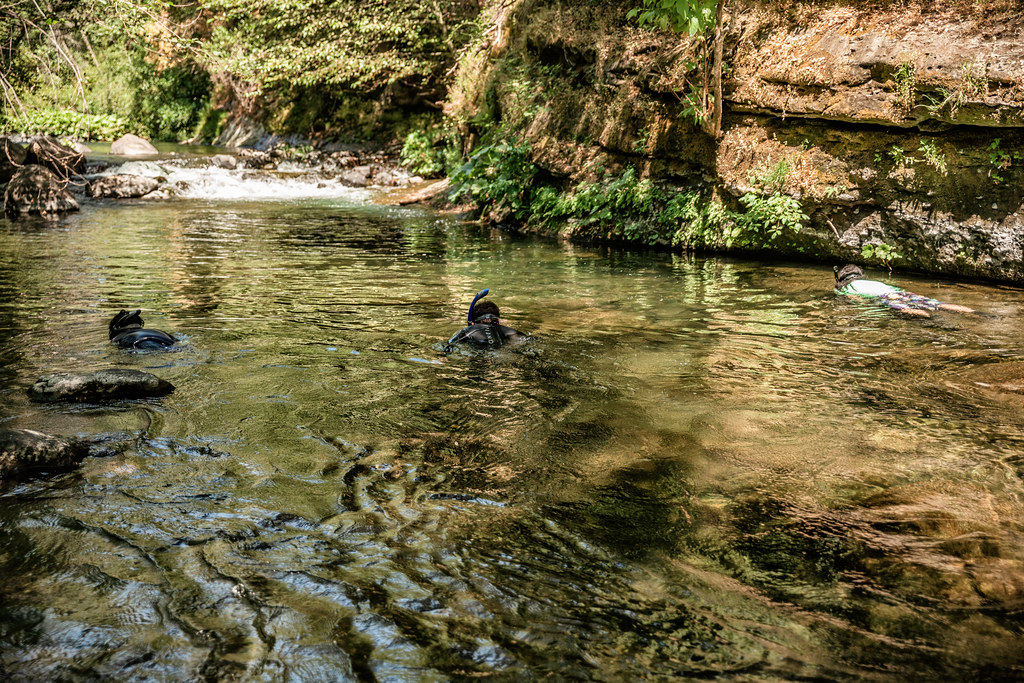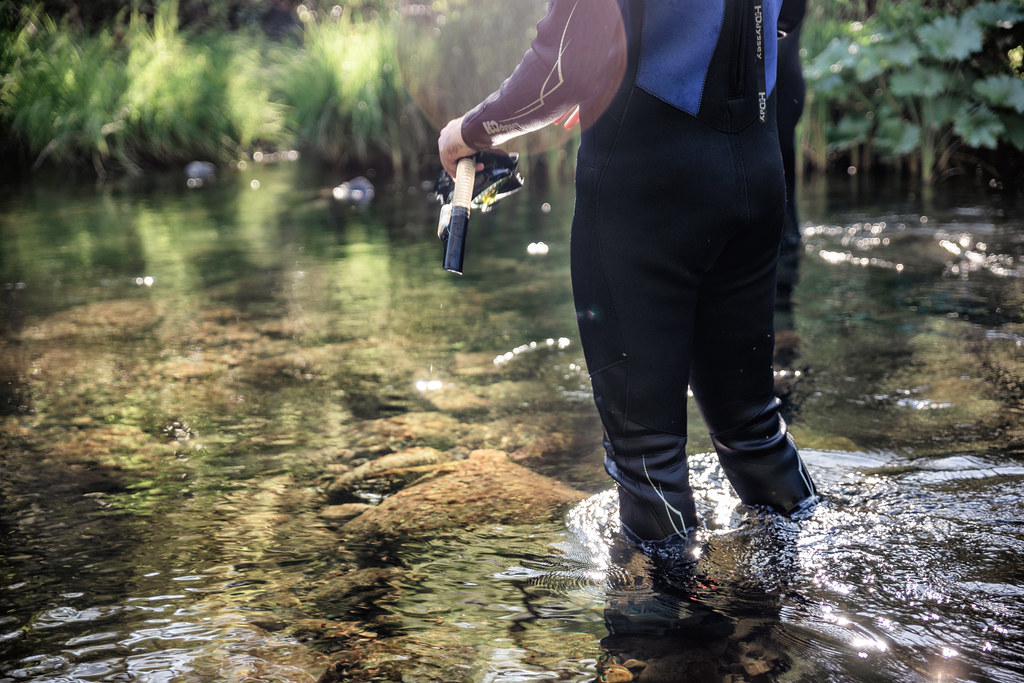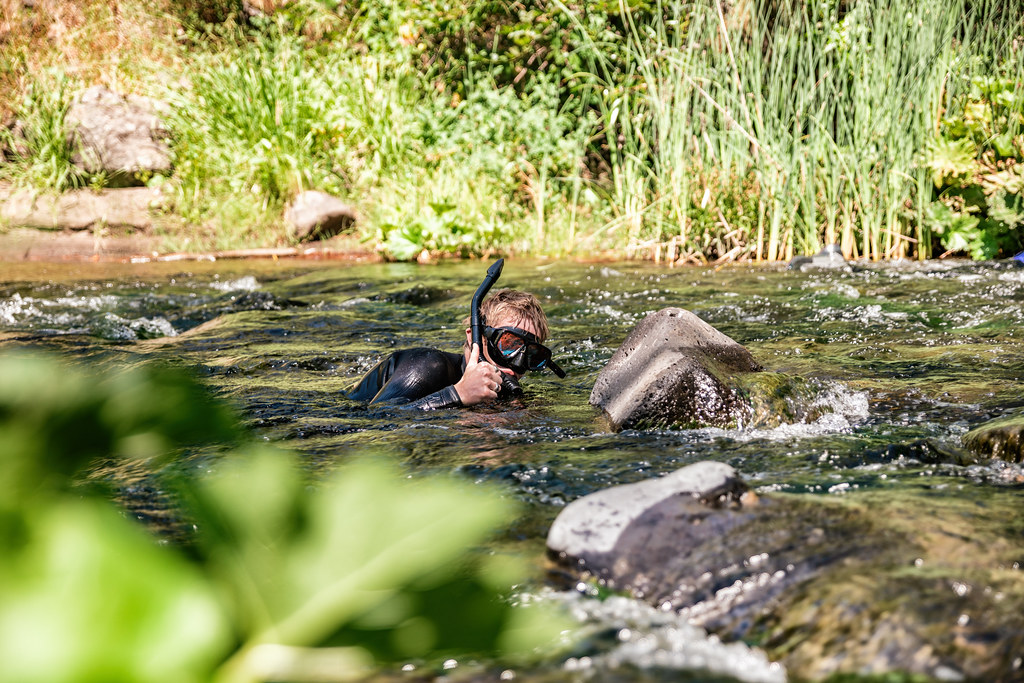Arizona Fish Report
Big Chico Creek Fish Report for 4-6-2020
Big Chico Creek Fish Report for 4-6-2020
Big Chico Creek: Revisited
Big Chico Creek - Chico, CA

Photo Credit: Courtesy of FishBIo
by FISHBIO
4-6-2020
During the past summer, FISHBIO revisited CSU Chico’s Big Chico Creek Ecological Reserve for the fourth time since 2013 to survey the creek’s summertime trout population. The Reserve provides a nearly 4,000-acre extension adjacent to Chico’s Upper Bidwell Park, creating an uninterrupted corridor of protected land flanking the creek. The creek is home to resident rainbow trout as well as steelhead, the ocean-going form of the species. The latter has been in decline in California and elsewhere, and is currently listed as “Threatened” under the Endangered Species Act. While our surveys don’t necessarily allow us to evaluate the abundance of the ocean-going life history form, the juveniles of rainbow trout and steelhead comingle, and trends in their combined abundance can provide insights about the condition of the overall fish population – in this case, indicating a bounce back to pre-drought numbers.
Big Chico Creek is an ideal stream to monitor fish populations for a number of reasons. For one, the creek’s flow patterns, especially in the area we surveyed, have hardly been altered from their natural state, as there are no dams or large diversions. As such, data from Big Chico Creek can provide insights on how populations of threatened fish fare under natural conditions. Also, the creek is relatively small and runs quite clear during the summer months, making it well-suited for non-invasive, observational surveys (in contrast to surveys that require capturing and handling fish). Lastly, this survey is a welcome opportunity to collaborate with our partners at the Reserve, take some student interns out in the field, and give other volunteers a chance to participate in fish surveys! In 2019, with help from reserve staff and a handful of other volunteers, we once again snorkeled about 20 percent of runs, riffles and pools of Big Chico Creek within the Ecological Reserve, counting fish along the way. We then used our observations to calculate an overall abundance of rainbow trout/steelhead in the study area.
Three days later, the numbers were in: an estimated 2,576 rainbow trout call this section of creek home, in addition to a few Sacramento suckers, brown trout, some prickly sculpin, and countless California roach. This level of trout abundance is a marked increase compared to our 2018 estimate of 1,876 trout, and is comparable to our 2013 estimate of 2,515 trout, which we made before the hottest years of the record-setting recent drought. In contrast to years past, most trout were observed in riffles, and more than half of the trout we observed were small (< 6 inches/150 mm). This bodes well for the coming years, when these offspring of drought-survivors reach reproductive age.
The relatively high estimated density of trout is a testament to the importance of Big Chico Creek, and specifically the Big Chico Creek Ecological Reserve, to the conservation and recovery of Central Valley steelhead. The number of trout observed in this survey confirms the importance of this habitat to the threatened species, and the need for continual monitoring and conservation of resident trout populations. We always look forward to this survey of our local creek, and hope we will be able to continue this effort for many years to come. For those interested in reading more about this year’s survey and those of years past, a summary report can be found here.
FISHBIO is a dedicated group of research scientists, engineers, and technicians that specialize in counting, tracking, and analyzing trends in fish and wildlife populations throughout the world. An expert staff, technical capacity, and state-of-the-art equipment make FISHBIO a trailblazer in aquatic research. For more information, please visit FISHBIO.com
Photos
More Reports

3-23-2020
We are living in the Anthropocene. Scientists have classified the current geologic epoch based on overwhelming evidence that human influence...... Read More

3-16-2020
The mudskipper is a fish seemingly stuck in evolutionary limbo – one that can survive in both terrestrial and aquatic...... Read More

Arizona.FishReports.com © 2026. All Rights Reserved.
Website Hosting and Design provided by TECK.net
Website Hosting and Design provided by TECK.net
